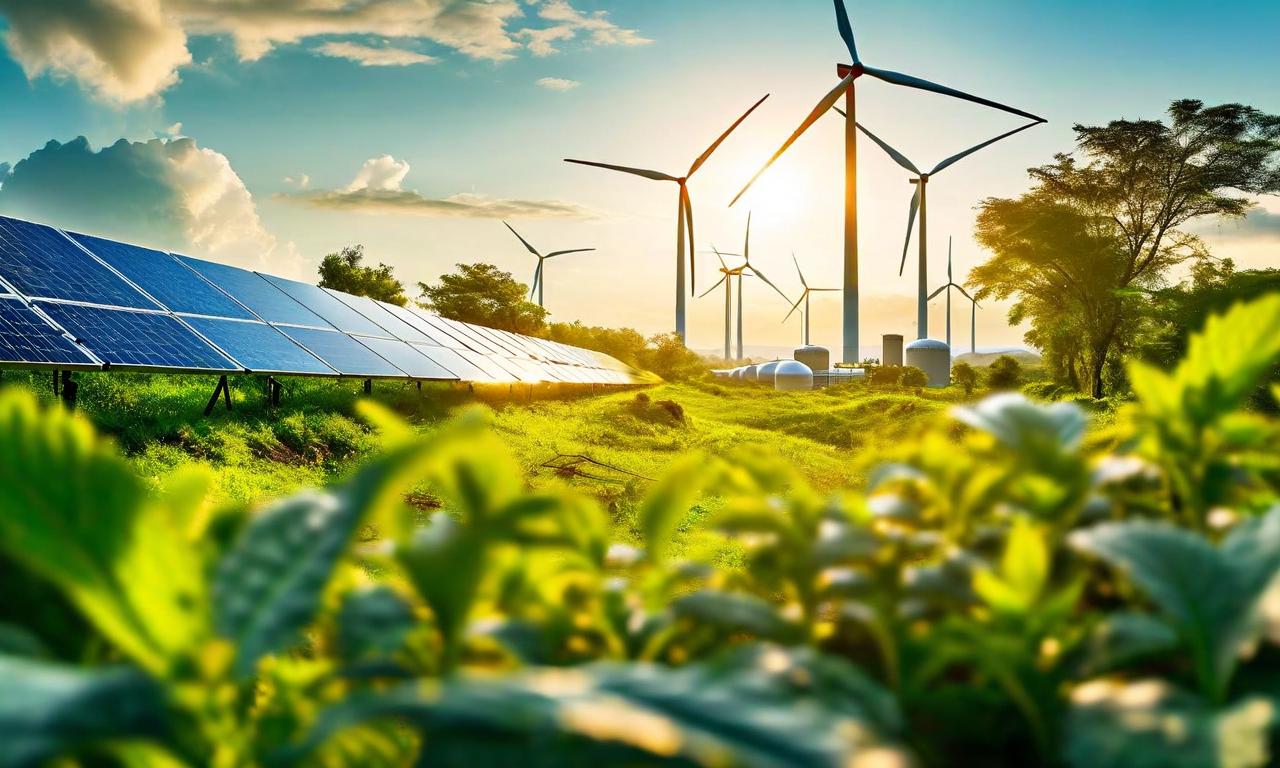GST Slash on Renewable Energy Equipment Set to Energize Clean Energy Stocks
The GST Council has reduced the tax rate on renewable energy devices and manufacturing parts from 12% to 5%, effective September 22. This includes solar cookers, wind turbines, biogas plants, and photovoltaic cells. Non-lithium-ion batteries will now be taxed at 18% (down from 28%), and fuel-cell vehicles at 5% (down from 12%). The move is expected to lower equipment costs, increase investment, accelerate clean energy adoption, and boost domestic manufacturing in the renewable energy sector. Potential beneficiaries include Adani Green Energy, Tata Power, NTPC Ltd, and other companies in the clean energy industry.

*this image is generated using AI for illustrative purposes only.
In a significant move to boost the renewable energy sector, the GST Council has announced a substantial tax reduction on renewable energy devices and manufacturing parts. The decision, which comes into effect from September 22, is expected to have far-reaching implications for the clean energy industry and related stocks.
Key Highlights of the GST Reduction
- The GST rate on renewable energy devices and manufacturing parts has been slashed from 12% to 5%.
- The tax cut encompasses a wide range of clean energy equipment including:
- Solar cookers
- Solar water systems
- Biogas plants
- Windmills
- Wind-operated electricity generators
- Waste-to-energy plants
- Photovoltaic cells
Additional Tax Reductions
The GST Council's decision extends beyond just solar and wind energy equipment:
- Non-lithium-ion batteries will now be taxed at 18%, down from the previous 28%.
- Fuel-cell cars, buses, and trucks will see their GST rate reduced to 5% from 12%.
Potential Beneficiaries
The tax reduction is anticipated to benefit a range of companies operating in the renewable energy sector. Some of the potential beneficiaries include:
- Adani Green Energy
- Tata Power
- NTPC Ltd
- Waaree Energies
- KPI Green Energy
- Sterling & Wilson Renewable Energy
- Reliance Industries
- ReNew
Impact on the Sector
Market participants are optimistic about the implications of this tax cut:
Lower Equipment Costs: The reduction in GST is expected to significantly decrease the cost of renewable energy equipment.
Increased Investment: Lower costs are likely to attract more investment into the sector, potentially accelerating the growth of clean energy projects.
Accelerated Adoption: The tax cut could lead to faster adoption of non-fossil fuel energy sources, aligning with India's clean energy goals.
Boost to Manufacturing: The move may encourage domestic manufacturing of renewable energy equipment, supporting the 'Make in India' initiative.
Government's Commitment to Clean Energy
This decision underscores the government's commitment to promoting renewable energy. Finance Minister Nirmala Sitharaman announced the tax cut following the 56th meeting of the GST Council held in New Delhi on September 3. The move aligns with India's ambitious targets for increasing its renewable energy capacity and reducing dependence on fossil fuels.
As the renewable energy sector gears up for this favorable policy change, it remains to be seen how quickly companies can capitalize on the reduced tax rates and how this will translate into growth for clean energy stocks in the coming months.




























